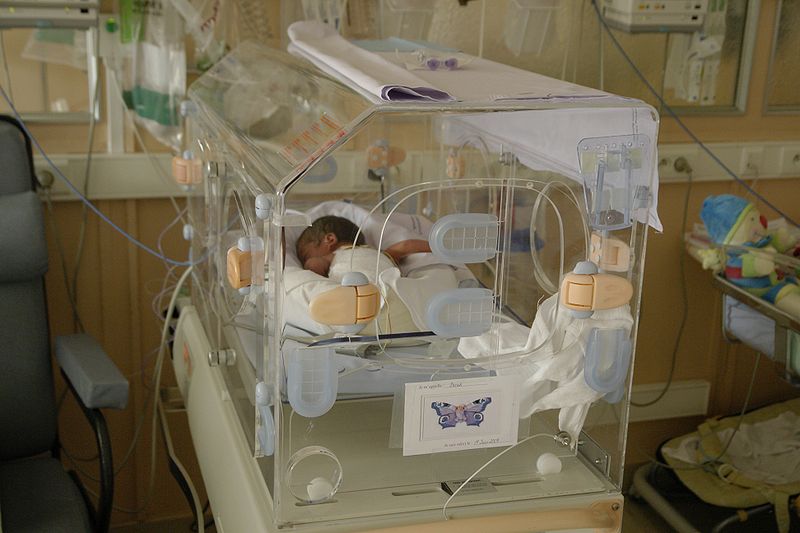
13/04/2021
Postnatal molecular changes associated with the fetal inflammatory response have been identified in extremely preterm newborns
The molecular changes observed after birth reveal for the first time a postnatal alteration of adaptive immunity in extremely preterm newborns affected by fetal inflammatory response before birth.
Published by UPF; 12/04/2021
A new study provides the largest catalogue to date of postnatal molecular changes associated with the fetal inflammatory response in extremely preterm newborns. The study, published in The FEBS Journal, has been jointly coordinated by Robert Castelo, associate professor at UPF and head of the Functional Genomics group of GRIB, and Teresa Cobo, a specialist in maternal-fetal medicine at Hospital Clínic-IDIBAPS, with Daniel Costa, a paediatrician at the Fundació Salut Empordà as a first author.
Worldwide, more than one in ten babies are born prematurely, i.e., before 37 gestational weeks. Around 5% of preterm neonates are extremely preterm, born before the 28th week of gestation. Thanks to antenatal and postnatal medical advances, extremely preterm newborns increasingly survive premature birth. However, they often develop diseases of prematurity, such as perinatal brain damage, which can cause major neurological sequelae such as cerebral palsy and cognitive retardation.
Infection of the uterine cavity (intraamniotic infection) is one of the main causes of spontaneous preterm birth, particularly among extremely preterm newborns. Intraamniotic infection is known to affect the fetus causing a fetal inflammation, known as a fetal inflammatory response (FIR). Molecular alterations induced by FIR often trigger inflammation in the blood (systemic) of the newborn which may persist beyond birth (neonatal systemic inflammation). By means of mechanisms that are not fully understood, both FIR and neonatal systemic inflammation increase the risk of perinatal brain damage. "This research has allowed us to identify postnatal molecular changes associated with FIR that provide clues on the mechanisms that trigger systemic inflammation", explains Robert Castelo.
By comparing blood samples from extremely preterm newborns affected and unaffected by FIR, 782 changes in the activity of genes and 27 in that of proteins, were identified. These molecular changes observed after birth reveal for the first time a postnatal alteration of adaptive immunity in extremely preterm newborns affected by FIR before birth.
The research team conducted the molecular analysis in peripheral blood of 21 extremely preterm neonates born at the Hospital Clínic of Barcelona, ten of them being affected by FIR. To avoid extracting blood from newborns that often weigh less than one kilogram at birth, dried blood spots collected by the Neonatal Screening Programme of Catalonia were repurposed, thanks to the collaboration of Dr. Jose Luis Marín Soria at Hospital Clínic. The results also highlight that the 50μL contained in a single drop of blood stored systematically by the neonatal screening programme is a valuable source of molecular information about the perinatal period.
"A step forward in this research is to look up earlier whether we can detect these molecular changes, during pregnancy, in the amniotic fluid of women at greater risk of developing an intraamniotic infection. This research opens a window of opportunity for these vulnerable newborns as it enables redirecting their monitoring to have a positive influence on the neonatal prognosis", says Teresa Cobo, co-author of the study. This research opens a window of opportunity for these vulnerable newborns as it enables redirecting their monitoring to have a positive influence on the neonatal prognosis. "The investigation was the result of an intense, selfless collaboration among professionals in a variety of fields, and it has been made possible thanks to the generosity of the families involved. The results of the study may help the long road to improving the health of preterm newborns and their families", Daniel Costa concludes.
The study has also involved the Proteomics Unit from the Centre for Genomic Regulation (CRG) and the UPF, the Genomics Unit from the UPF and the Pathological Anatomy Services from Hospital Clínic and Hospital Sant Joan de Déu.
Reference article
Costa D, Bonet N, Solé A, González de Aledo-Castillo JM, Sabidó E, Casals F, Rovira C, Nadal A, Marin JL, Cobo T, Castelo R. Genome-wide postnatal changes in immunity following fetal inflammatory response. FEBS J, 2021; 288(7): 2311-2331. doi: 10.1111/febs.15578. Epub 2020 Oct 24. PMID: 33006196.
Funding
The study was supported by the Agency for Management of University and Research Grants, Carlos III Health Institute, the Spanish Ministry of Economy and Competitiveness.



